Repetitive Stress Injury
New Jersey Repetitive Stress Injury Attorneys
Seasoned Workers’ Compensation Lawyers Help with Repetitive Stress Injury Claims
Repetitive stress injuries include several painful or uncomfortable conditions that involve muscles, tendons, nerves, and other soft tissues. A repetitive stress injury is usually caused by repeated use of a part of the body, typically the neck, forearms, elbows, wrists, hands, or fingers. Many occupations cause repetitive stress injuries, from working at a computer to performing hard manual labor. The New Jersey law firm of Garces, Grabler & LeBrocq houses a team of passionate labor lawyers who help good, hard-working people like you file workers’ compensation claims for repetitive stress injuries. To learn more about our services, call us today to speak with a workers’ comp attorney.
Learn more about repetitive stress injuries
Experts say that a repetitive stress injury is an injury to the musculoskeletal and nervous systems. It is often associated with an occupation that involves repetitive tasks, forceful exertions, vibrations, pressing against hard surfaces (mechanical compression), or sustained or awkward positions. Repetitive stress injuries may also be related to the continuous use of a computer keyboard. The number of people experiencing these injuries as a result of computer use has been increasing for many years. Repetitive stress injuries may also result from non-work-related actions such as recreational activities, particularly golf and tennis.
Some examples of repetitive stress injuries are:
- Bursitis: inflammation of the fluid-filled sacs that act as cushions between bones, tendons, joints, and muscles. There is pain at the site of the inflammation.
- Carpal tunnel syndrome (CTS): a condition caused by compression of the nerve that runs through the wrist area. Individuals with CTS experience numbness and pain in the hand.
- Epicondylitis: a condition resulting from overuse of the muscles and tendons, especially in the elbow. This is sometimes a sports injury (for example, “tennis elbow” or “golf elbow”) but it is also a common work-related injury in construction and manufacturing industries.
- Rotator cuff syndrome: inflammation of tendons and muscles in the shoulder.
What to do if you develop a work-related repetitive stress injury
You should notify your employer immediately, and file for Workers’ Compensation benefits through your employer’s insurance carrier. If your claim is denied, or if you are experiencing difficulties with your claim, speak with a workers’ compensation lawyer at Garces, Grabler & LeBrocq. Founded in 1991, we are a full-service, diversified, and multi-lingual law firm, representing clients in New Jersey, New York, and Pennsylvania. Our headquarters are located in New Brunswick, New Jersey, with additional law offices in Trenton, Elizabeth, Newark, Plainfield, Perth Amboy, and Freehold. Our workers’ comp attorneys serve all communities in Mercer County, Monmouth County, Middlesex County, Essex County, and Union County. Call us today at 1-800-923-3456 or fill out our online contact form. Our labor lawyers and workers’ compensation lawyers provide aggressive legal representation with proven results.
Do You Need Help with A New Jersey Repetitive Stress Injury Claim?
Work injuries do not always occur from a specific traumatic event. Sometimes they develop over time from the wear and tear of the body due to routine repetitive motions. New Jersey workers’ compensation law recognizes repetitive stress injuries, but employers and insurers may deny these claims, and that’s when you need Garces, Grabler & LeBrocq to step in.
We will fight to prove that your repetitive stress injury is work-related and that you are suffering from a permanent disability. We handle all workers’ compensation claims, representing employees in Union, Hudson, Essex, and Bergen counties.
If you have developed a repetitive stress injury at work, contact us today for a free consultation. We will review your case and help you understand your legal options.
No Fee Unless
GGL Wins
Repetitive Stress Injury Claims
If you have suffered a repetitive stress injury, you may be eligible for workers’ compensation benefits. These benefits can help you cover the cost of medical treatment and lost wages.
To qualify for benefits, you will need to show that your injury was caused by your job duties. This can be difficult to do without the help of an experienced workers’ compensation attorney.
At The Workers Compensation Attorney, we have helped many clients secure benefits for their repetitive stress injuries. We can help you gather the evidence you need to prove your case and get the benefits you deserve.
Proving the Connection to Your Job
If you’ve been injured at work, it’s important to report the incident to your employer as soon as possible. Even if you don’t seek medical treatment right away, your employer should be aware of the injury and any symptoms you’re experiencing.
Your employer or their workers’ compensation insurance carrier may reject your claim or demand more proof, but we can help. It’s important to note that any treatment for a work-related injury must be requested by you and pre-authorized by your employer or the workers’ compensation insurance company through their medical providers. Otherwise, the payment for any unauthorized medical bill may come out of your pocket.
If you’re facing challenges getting the treatment you need, we can help you navigate the workers’ compensation system and get the care you deserve.
What Evidence is Required to Prove a Repetitive Stress Injury Claim?
If you are filing a claim for a repetitive stress injury, also known as an RSI, certain types of evidence will help prove your case. This evidence can include medical records, eyewitness accounts, and documentation of the conditions under which you were working when the injury occurred.
Medical records are perhaps the most important type of evidence in an RSI claim. These records can document the injuries you have sustained and the treatment you have received. They can also help to establish a connection between your injuries and the conditions under which you were working.
Eyewitness accounts can also help prove an RSI claim. If there are people who saw the events leading up to your injury, their testimony can be valuable in establishing what happened and who was at fault.
Finally, documentation of the conditions under which you were working when the injury occurred can help prove your claim. This documentation can include things like safety reports, work schedules, and pay stubs. This type of evidence can help to establish the link between your injury and your working conditions.
Causes Of Repetitive Stress Injuries
Repetitive stress injuries (RSIs) are a type of injury that can occur when a person performs the same motion repeatedly. RSIs can happen at work, during leisure activities, or even while performing everyday tasks such as cooking or cleaning.
There are many different types of RSIs, but they all have one thing in common: they are caused by repetitive motions. Some of the most common types of RSIs include carpal tunnel syndrome, tendonitis, and trigger finger.
RSIs can happen to anyone, but there are certain groups of people who are more at risk. People who perform the same motion repeatedly for long periods are more likely to develop an RSI. This is often seen in people who work in assembly-line jobs or who play a lot of video games.
People who have pre-existing conditions such as arthritis or diabetes are also at a higher risk of developing an RSI. Additionally, women are more likely to develop RSIs than men, and older adults are more likely to develop RSIs than younger adults.
There are several different treatment options for people who have developed an RSI. Physical therapy and occupational therapy are often recommended for people with mild RSIs. For people with more severe RSIs, surgery may be necessary.
If you think you may have developed an RSI, it is important to see a doctor as soon as possible. Early diagnosis and treatment are essential for preventing the condition from becoming worse.
Many different activities can lead to repetitive stress injuries, including but not limited to:
- Using a computer mouse
- Typing at a computer keyboard or texting on a phone
- Swiping items at a supermarket checkout
- Grasping tools
- Working on an assembly line
- Training for sports
These activities put repeated stress on the muscles, tendons, and nerves of the wrists, forearms, elbows, neck, shoulders, and other areas of the body. Over time, this can damage the tissues and cause pain or other problems. If you do any of these activities regularly, it’s important to take steps to reduce your risk of a repetitive stress.
Symptoms Of a Repetitive Stress Injury
Signs and symptoms of a repetitive stress injury can vary depending on how long you have had the injury, what part of the body it affects, and your day-to-day activities. For most people, the symptoms start gradually and become more constant and intense over time. Symptoms may also keep you from doing your normal daily activities, both at home and at work.
Some common signs and symptoms of a repetitive stress injury include:
- Pain, numbness, or tingling in the affected area
- Weakness in the affected area
- Swelling in the affected area
- Stiffness in the affected area
- Difficulty using the affected body part
If you think you may be suffering from a repetitive stress injury, it is important to see a doctor or other healthcare provider as soon as possible. The sooner you are diagnosed and treated, the better your chances of recovery.
What Should I Do if I’m Experiencing a Repetitive Stress Injury?
If you are experiencing a repetitive stress injury, it is important to take action right away to minimize the damage and prevent further injuries.
Here are some steps you should take:
- Rest the affected area: This will help reduce inflammation and pain.
- Apply ice: Applying ice to the affected area can also help reduce inflammation and pain.
- Use heat: After the initial swelling has gone down, you can use heat to loosen up the muscles and promote healing.
- Take over-the-counter pain medication: If the pain is severe, you may need to take over-the-counter pain medication such as ibuprofen or acetaminophen.
- See a doctor: If the pain persists or gets worse, you should see a doctor for further evaluation and treatment.
By taking these steps, you can help reduce the pain and swelling associated with a repetitive stress injury and promote healing.
How Much Does a New Jersey Worker’s Compensation Attorney Cost?
When you are injured at work, you may be entitled to workers’ compensation benefits. These benefits can help you cover your medical expenses and lost wages while you recover from your injuries. In some cases, you may also be able to receive additional compensation for pain and suffering.
To receive these benefits, you will need to file a workers’ compensation claim. This can be a complicated process, and it is often helpful to have an attorney on your side.
The cost of hiring a New Jersey workers’ compensation attorney will vary depending on the lawyer’s experience and the specifics of your case. Many attorneys work on a contingency basis, which means they will only receive a portion of the benefits you are awarded. In most cases, attorneys will take 33% of your total award.
If you have a workers’ compensation claim, it is important to speak with an attorney as soon as possible. The sooner you get started on your claim, the better your chances of receiving the full benefits you are entitled to.
How A Workers’ Compensation Attorney In New Jersey Could Help You?
If you’ve suffered a repetitive stress injury at work, you may be entitled to workers’ compensation benefits. However, in some cases, these injuries can be difficult to prove from a worker’s compensation standpoint. You could benefit from a consultation with an attorney who will represent your interests alone.
Get help with your repetitive stress injury claim by calling a New Jersey workers’ compensation attorney at Garces, Grabler & LeBrocq today at Call or fill out our online contact form.
Related Practice Areas
No Fee Unless
GGL Wins
We've got you covered.
Tell us what happened.
One of our advisers will contact you.

OFFICIAL PARTNER OF RUTGERS ATHLETICS
Recent GGL Wins
Workers Compensation
32-year-old laborer suffered severe burns from an industrial accident while working.
$2,5 Million
Verdict
Workers Compensation
30 year-old laborer suffered severe head and neck injuries in a forklift accident that was not properly maintained while working.
$1,8 Million
Verdict
Workers Compensation
Petitioner suffered a catastrophic injury resulting in a skull fracture, cervical fusion surgery, and a traumatic brain injury, among other orthopedic injuries, after falling off the top of a tanker truck.







